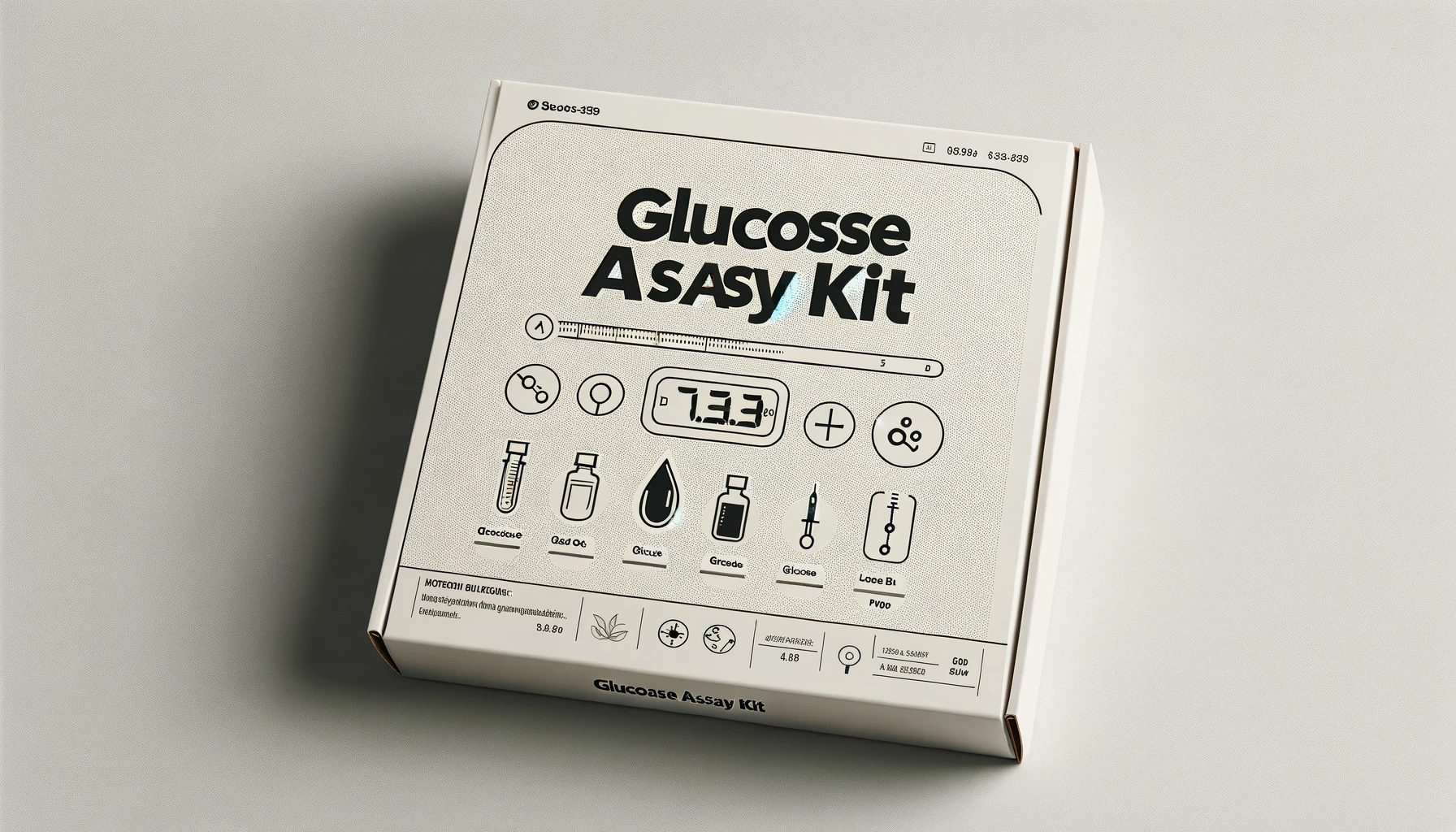Glucose Assay Kit
Is a biochemical assay kit designed to measure the concentration of glucose in a sample. These kits typically utilize enzymes that specifically interact with glucose to produce a detectable signal, which can be quantified using colorimetric, fluorometric, or enzymatic methods. Glucose assay kits are widely used in research, clinical diagnostics, and industrial applications to assess glucose levels in biological samples such as blood, serum, plasma, urine, and cell culture supernatants.

Features
Cost-effectiveness
Glucose assay kits offer good value for money, providing high-quality reagents and performance at a reasonable cost per assay, making them accessible to researchers and laboratories with varying budget constraints.
Quality Control
Quality control measures are implemented during the manufacturing process to ensure the reliability and consistency of assay components, resulting in reliable performance and reproducible results.
Accuracy and Precision
Glucose assay kits provide accurate and precise measurements, ensuring reproducibility and reliability of results across different experiments and laboratories.
Applications
Cell Culture and Bioprocessing
Glucose assay kits are employed to monitor glucose consumption and production rates in cell culture systems, bioreactors, and fermentation processes for optimizing cell growth and bioproduction.
Food and Beverage Industry
The food and beverage industry utilizes glucose assay kits for quality control purposes to measure glucose levels in food products, beverages, and ingredients, ensuring compliance with regulatory standards and product consistency.
Environmental Monitoring
Glucose assay kits are used in environmental studies to measure glucose concentrations in water, soil, and other environmental samples, providing insights into microbial activity, nutrient cycling, and pollution levels